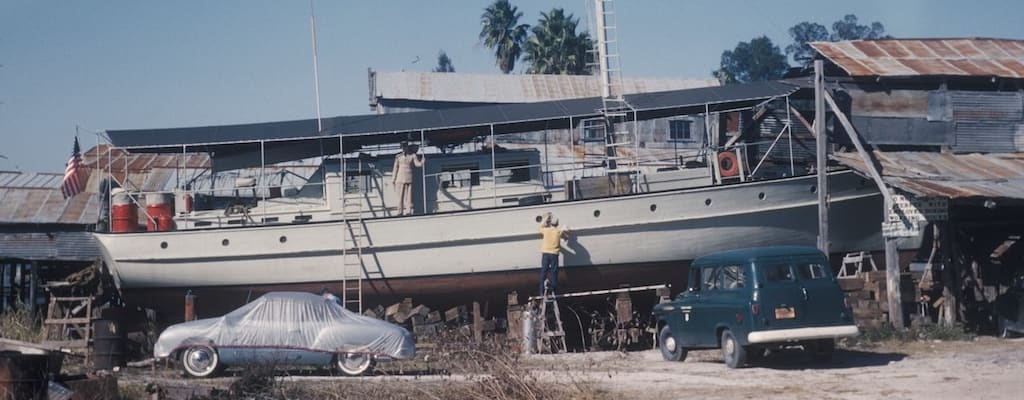engine room: Idiom Meaning and Origin
What does ‘engine room’ mean?
The idiom "engine room" refers to the place where the machinery or engines of a ship or other vehicle are located. In a metaphorical sense, it can mean the central or most important part of a system or organization.

Idiom Explorer
The idiom "in the tank" means being strongly biased or supportive of someone or something, often to the point of being blindly loyal or uncritical.
The idiom "in the driver's seat" means to be in control or have the power to make decisions. It refers to being in a position of authority or leadership.
The idiom "in high gear" means to be functioning or operating at a very fast or intense pace, usually with a lot of energy and enthusiasm.
The idiom "in full gear" means to be operating at maximum speed or efficiency, with all resources and effort fully engaged.
An idiom that means an extremely small or tight space, often used to convey a sense of constriction or being cramped.
The idiom "hold the reins" means to have control or be in charge of a situation or group of people.
The idiom "heart of hearts" refers to one's deepest and truest emotions or beliefs.
The idiom "front and center" means to be in a prominent or important position, often getting attention or focus.
"Unveiling the Inner Workings"
Engine room is an idiom that is widely used in English-speaking countries, particularly in the United States. The true origin of this idiom is somewhat obscure, but it is believed to have nautical roots. The term "engine room" refers to the area on a ship where the machinery and engines are located. It signifies the core or central part that keeps things running smoothly.
One possible explanation for the origin of this idiom is its association with the Industrial Revolution. As steam-powered engines became increasingly common during that era, the engine room became a crucial part of a ship's operation. This literal usage may have later evolved into the figurative meaning we use today.
Another theory suggests that the idiom may have originated from the military. The engine room in this context could be the command center or control room, where important decisions and operations take place.
In modern usage, the idiom "engine room" is often used in business and organizational settings. It is used to describe the department or individuals responsible for driving the success and efficiency of an organization. This could refer to a company's operations team, technical department, or any other function that plays a critical role in the day-to-day functioning of the organization.
Furthermore, the idiom can also be used metaphorically to describe a person who is the driving force behind a project or endeavor. Just as the engine room is essential to the functioning of a ship, this individual is crucial to the success of the undertaking.
The idiom "at the helm" is closely related to the concept of the engine room. Just as the engine room is the central part of a ship that drives its operation, being "at the helm" means being in a position of leadership or control. It signifies having the responsibility to steer the ship in the right direction. In an organizational context, this idiom can be used to describe someone who is in a leadership role, making important decisions and guiding the organization towards its goals.
The idiom "center field" is another related phrase that can be used in conjunction with the concept of the engine room. In baseball, the position of center field is considered a crucial part of the outfield, as it requires good judgment, speed, and the ability to cover a large area. Similarly, the engine room is the central part of a system or organization that drives its operation and keeps things running smoothly. The idiom "center field" can be used to describe a person or department that plays a vital role in the overall functioning and success of an organization.
Additionally, the idiom "business end" can be associated with the concept of the engine room. In the context of a ship, the business end refers to the area where the work is done, such as the bow or stern. In a figurative sense, it can be used to describe the core or central part of a system or organization. The engine room, as the central part that drives the operation of a ship, can be considered the business end of the vessel. This idiom can be used to emphasize the importance and focus on the core aspects that are essential for the success of a business or organization.
The idiom "engine room" has become ingrained in the English language and is regularly used to convey the pivotal importance of a core component or individual within a system. It expresses the idea that without this crucial element, everything would come to a halt or fail to function efficiently.
While the true origin of the idiom remains uncertain, its usage and meaning have evolved over time to become a commonly understood expression in various contexts. The versatility and widespread familiarity of this idiom demonstrate the power and adaptability of language to convey complex ideas in a concise manner.
Example usage
Examples of how the idiom "engine room" can be used in a sentence:
- When it comes to driving change in an organization, you need to involve everyone, not just the top executives; they are the ones who run the engine room.
- The engine room of the company's success is undoubtedly its dedicated and hardworking employees.
- During the crisis, the management relied heavily on the expertise and problem-solving skills of the engineers in the engine room to find a solution.
More "Transportation" idioms



